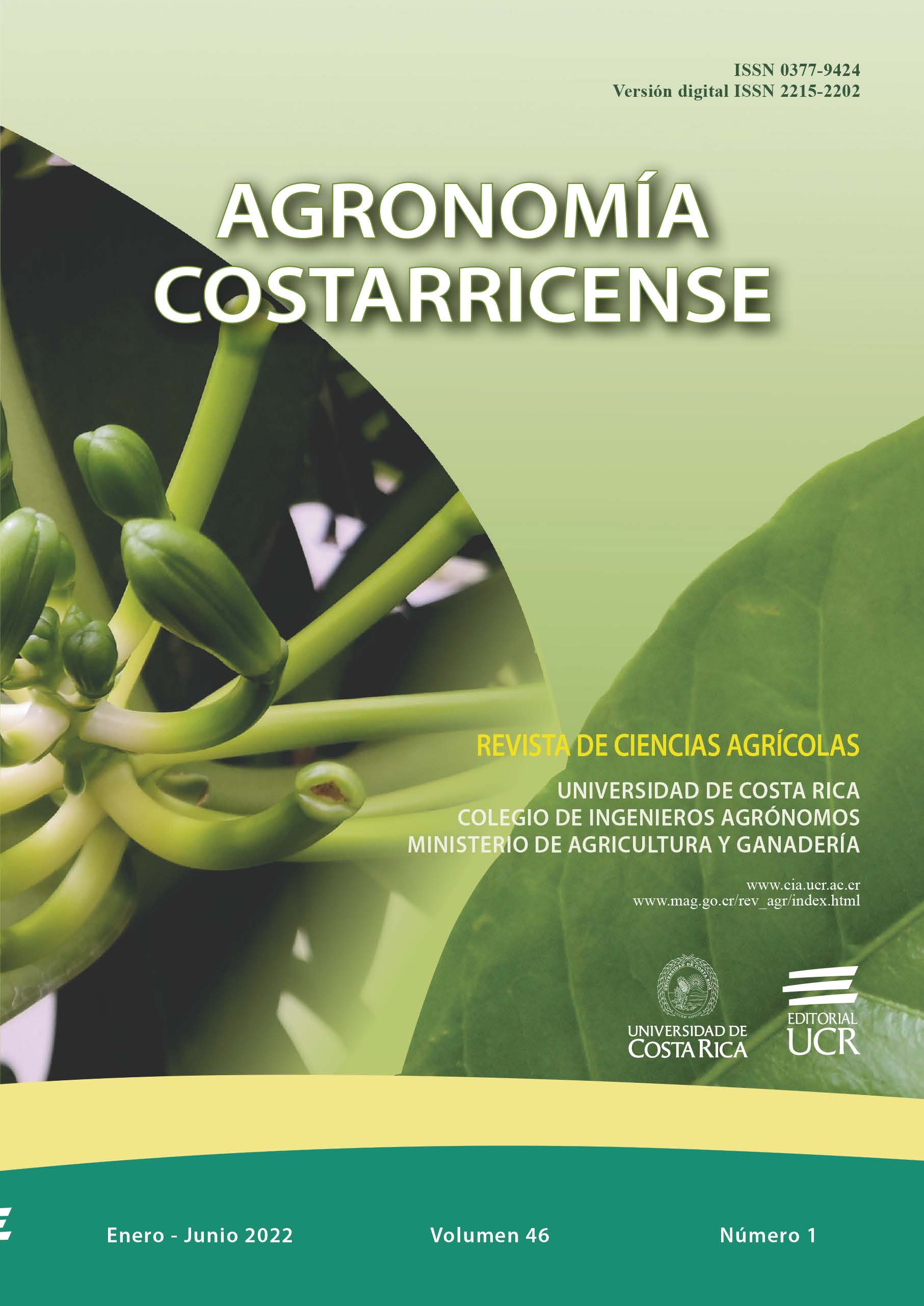Abstract
Introduction. Pseudomona sp as a plant growth promoting rhizobacteria is widely used in various crops that promotes growth and prevent pathogen colonization. Objective. To evaluate the influence of Pseudomona sp on the emergence of seeds and the development of Theobroma cacao L. seedlings in reddish brown fersialitic soils of Jibacoa. Materials and methods. The research was carried out in 2018 at the Jibacoa AgroForestry Experimental Station in the Manicaragua municipality, Villa Clara province, Cuba. In a randomized block design with 3 replications, 3 treatments were studied: a- Control: sowing seeds in a substrate composed of 3 parts of soil and one part of organic fertilizer (3/1); b- sowing seeds in a substrate 5/1; c- substrate 5/1 with sowing of pelleted seeds with Pseudomona sp. The emergence of the seeds was evaluated and the height, stem diameter, dry mass and leaf area were measured at 10 positions. Results. The application of Psedomona sp to cocoa beans at the time of sowing increased their emergence by 14.57% with respect to those not pelleted in the same volume of organic fertilizer and by 4.18% with respect to the control treatment. This biofertilizer increased the dry mass and leaf area by 18.3% and 37.8% respectively in the 5/1 substrate, and by 18.3% and 46.9% in the same way with respect to the control treatment. Conclusions. The application of Psedomona sp to the seeds at the time of sowing causes positive effects in the emergence and development of the seedlings by increasing their dry weight and leaf area.


